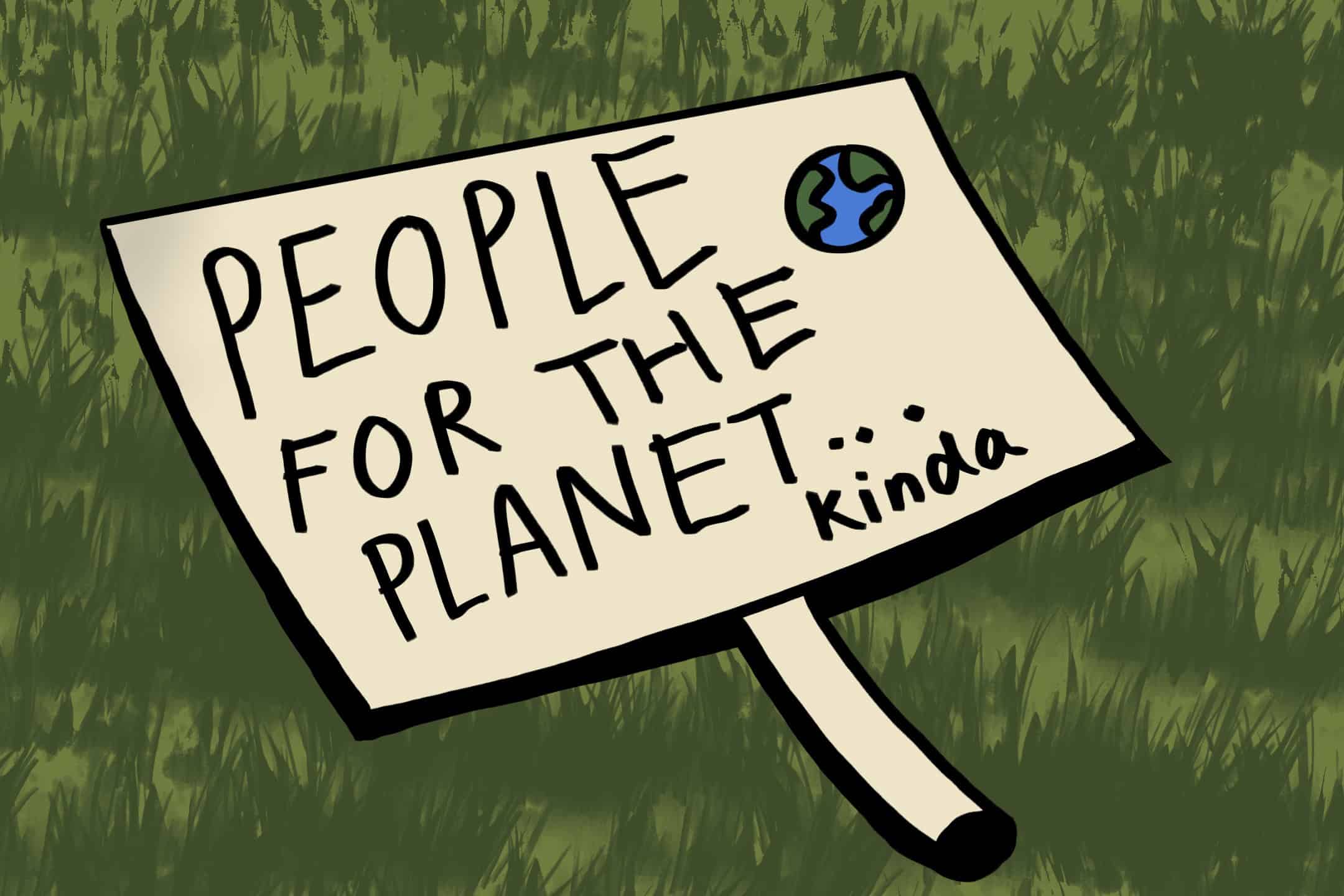Climate crisis denial has evolved into various forms, particularly among young people in academia. One of the most insidious forms is known as ‘soft climate denial,’ where individuals acknowledge the reality of the climate crisis but fail to translate that awareness into meaningful action.
This is a phenomenon exemplified by people like my friend, whom I’ll call Bobby from British Columbia for the safety and perception of his moral character. Despite his passionate advocacy for environmental causes, he often finds his personal habits contradicting his beliefs — much like other soft climate deniers.
Understanding “soft climate denial”
Climate writer Michael Hoexter defined “soft climate denial” as the acknowledgment of the climate crisis’s existence without recognizing its anthropogenic causes — pollution and environmental degradation — or taking action to mitigate its effects.
This form of denial grants individuals the smug moral comforts of feeling informed and responsible, which then allows continued remorseless behaviours that contribute to environmental degradation.
MacEwan University researchers Shelley Boulianne and Stephanie Belland conducted a study comparing attitudes toward the climate crisis in Canada and the US, and found that approximately 21 per cent of people from the US and 12 per cent of Canadians exhibit soft denial tendencies, highlighting a significant challenge for climate justice efforts.
Bobby: an example in contradiction
As a postsecondary student, Bobby is aware of environmental issues and often discusses sustainability with his peers. However, his personal choices sometimes contradict his expressed values.
For instance, Bobby frequently uses disposable coffee cups while criticizing single-use plastics and wears fast-fashion clothing despite acknowledging the need for sustainable production methods.
This disconnect raises a crucial question: if we espouse values of sustainability but fail to consistently practice them, how effective are we in addressing the climate crisis? It is true that figuring out one’s own balance between political action and personal actions can be difficult, and Bobby’s behaviour reflects this struggle — revealing how even well-intentioned individuals can become ensnared in cognitive dissonance.
The psychology behind soft climate denial is complex and multifaceted. Psychiatrist Dr. Dragana Favre indicates in her research article that implicit denial occurs when individuals accept the scientific consensus on the climate crisis but fail to act due to various psychological barriers.
Psychological barriers to climate action
A 2023 study from the University of Porto’s Center for Psychology in Portugal examined how psychological barriers moderate the relationship between environmental attitudes and climate action. The study identified five key psychological barriers that contribute to the gap between attitudes and behaviour: finding change unnecessary, conflicting goals, interpersonal relationships, lack of knowledge, and tokenism.
Boulianne and Belland published another study in 2022, which showed that political ideology plays a crucial role in shaping attitudes toward the climate crisis. Their research found that Canadians’ views on climate issues are more influenced by ideological positions than those in the US, even after accounting for trust in political leaders. The study showed that approximately 21.19 per cent of the US sample and 12.33 per cent of the Canadian sample believed that the climate crisis was naturally caused: a form of soft denial.
In the US, the soft denial was more closely related to trust in political figures like former President Donald Trump as a source of information about the climate crisis. In contrast, ideological positions strongly drove Canadians’ climate crisis views. These findings highlight the importance of understanding the role of political ideology and trust in information sources when addressing climate crisis attitudes and developing effective communication strategies.
The prevalence of soft denial presents a significant challenge for climate education and activism.
To combat soft denial effectively, climate education must focus on bridging the gap between knowledge and action. Strategies could include promoting critical thinking by encouraging individuals to evaluate their beliefs and actions critically. We could also address psychological barriers by providing support for individuals struggling with cognitive dissonance. Or, if we decide to highlight collective responsibility, we can emphasize that individual actions are part of a larger systemic issue.
Moving beyond soft denial
Bobby’s situation could apply to any of us, and his contradictory actions could serve as a reminder that even those passionate about environmental issues can fall into the trap of soft denial. By recognizing our own inconsistencies and striving for better alignment between our beliefs and actions, we can contribute more meaningfully to the fight against the climate crisis.
In a world where every small action counts, it’s crucial for individuals like Bobby — and all of us — to transform awareness into actionable change. As we navigate these complexities together, we must remember that acknowledging our shortcomings is the first step toward genuine progress in addressing one of the most pressing challenges of our time.


